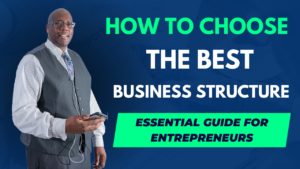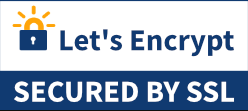Discovering Business Ideas With No Monetary Investment
In a world where it seems like everything costs money, it’s refreshing to know that there are still unusual business ideas to start with no money.
But how can you find these elusive opportunities? Here are three essential steps to help you discover your perfect no-money business venture:
Identifying Your Skills and Interests
First and foremost, you need to take a deep dive into your own skillset and passions. After all, your unique abilities and interests will be the foundation of your business.
So, spend some time reflecting on your strengths, weaknesses, and hobbies. Make a list of your skills and think about how you can leverage them in a business context.
For instance, if you have a flair for writing, consider starting a blog, freelance writing, or offering editing services.
The key is to match your talents with potential business opportunities.
Remember that businesses you can start with no money usually rely heavily on your expertise, creativity, and dedication.
Researching Trends and Market Gaps
Another important step is to research current market trends and identify any gaps that your business could fill.
Stay informed about emerging industries, consumer behavior changes, and new technologies. Understanding the market landscape will help you spot promising business ideas with no money.
To do this, you can subscribe to industry newsletters, join online forums and communities, and follow thought leaders on social media. Keep an eye out for pain points or areas where you think you can offer a unique solution.
For example, if you notice that people are struggling to find reliable information on eco-friendly products, you could create a website dedicated to sustainable living tips and product reviews.
Networking and Learning from Others
Lastly, networking is a powerful tool for uncovering new business ideas and learning from others. Join local meetups, attend conferences and workshops, and connect with like-minded individuals online.
Don’t be afraid to ask questions, share your ideas, and seek advice from experienced entrepreneurs.
By building connections with others in your desired industry, you’ll gain valuable insights and discover hidden opportunities.
For instance, you might learn about a low-cost software solution that allows you to offer your services more efficiently, or you might be introduced to a potential partner who shares your vision for a business with no monetary investment.
In conclusion, discovering unusual business ideas to start with no money requires a combination of self-awareness, market research, and networking.
By focusing on your skills and interests, keeping an eye on trends, and learning from others, you’ll be well-equipped to create a successful no-money business in 2023.
Online Businesses You Can Start with No Money
In today’s digital age, the internet has opened up a world of possibilities for entrepreneurs looking to start businesses without any upfront investment.
Let’s explore two popular online business models that require little to no money to get started: launching an e-commerce store through dropshipping and print-on-demand.
Launching an E-commerce Store
| Business Model | Pros | Cons |
|---|---|---|
| Dropshipping | – Low startup cost | – Lower profit margin |
| – Wide range of products | – Less control over quality | |
| – No inventory management required | – Shipping and supplier issues | |
| Print-on-Demand | – No inventory management required | – Higher base cost for products |
| – Unique, customizable products | – Limited product range | |
| – Better control over quality | – Longer production times |
An e-commerce store allows you to sell products online without the need for a physical storefront.
There are two primary methods for starting an e-commerce business with no money: dropshipping and print-on-demand.
Both models have their own unique advantages and challenges.
Dropshipping
Dropshipping is a business model where you act as the intermediary between customers and suppliers.
Instead of holding inventory, you purchase products from suppliers only after customers place orders through your online store.
The supplier then ships the products directly to the customers, and you keep the difference between the supplier’s price and your selling price.
To start a dropshipping business, you’ll need to:
- Choose a niche and research potential products
- Find reliable suppliers and establish relationships
- Set up an online store using a platform like Shopify or WooCommerce
- Market your store and attract customers
Pros of dropshipping:
- No need to hold inventory or manage shipping
- Low startup costs and overhead expenses
- Ability to test different products and niches easily
Cons of dropshipping:
- Lower profit margins due to supplier fees
- Less control over product quality and shipping times
- Potential for supplier-related issues, such as stockouts or delays
Print-on-Demand
Print-on-demand (POD) is another e-commerce business model that allows you to sell custom-designed products without holding inventory.
With POD, you create designs for products like t-shirts, mugs, and phone cases, then partner with a POD company that prints and ships the products on your behalf when customers place orders.
To start a print-on-demand business, you’ll need to:
- Develop unique and appealing designs for your products
- Choose a POD platform, such as Printful or Printify
- Integrate the POD platform with your online store
- Promote your products and drive traffic to your store
Pros of print-on-demand:
- No inventory or shipping management required
- Opportunity to showcase your creativity and design skills
- Flexibility to offer a wide range of products and designs
Cons of print-on-demand:
- Lower profit margins compared to traditional e-commerce
- Limited control over product quality and shipping times
- Dependence on the POD company for order fulfillment
In conclusion, both dropshipping and print-on-demand are viable options for starting an online business with no money.
By leveraging these e-commerce models, you can create a successful online store without the need for significant upfront investment.
Starting a Blog or Niche Website
Another excellent online business option that requires minimal investment is starting a blog or niche website.
By creating valuable content tailored to a specific audience, you can attract traffic and generate income through various monetization methods, such as affiliate marketing and advertisements.
Monetizing through Affiliate Marketing
Affiliate marketing is a revenue-sharing model where you promote products or services from other companies on your blog or website.
When visitors click on your affiliate links and make a purchase, you earn a commission.
To get started with affiliate marketing, follow these steps:
- Choose a niche and create high-quality content related to that niche
- Join affiliate programs that align with your niche (e.g., Amazon Associates, ShareASale, or CJ Affiliate)
- Add affiliate links to your content in a natural, non-spammy way
- Promote your content and drive traffic to your website
Pros of affiliate marketing:
- Passive income potential
- No need to create or manage your own products or services
- Opportunity to promote a wide range of products from different companies
Cons of affiliate marketing:
- Requires consistent effort to drive traffic and generate sales
- Dependency on affiliate program policies and commission rates
- Potential loss of trust from readers if content appears overly promotional
Monetizing with Advertisements
Another way to monetize your blog or niche website is by displaying advertisements. As your site gains traffic, you can partner with ad networks like Google AdSense or Media.net to serve targeted ads to your audience.
There are several ad formats to choose from, such as display ads, native ads, and video ads. You earn revenue based on the number of ad impressions or clicks.
Pros of monetizing with advertisements:
- Passive income potential
- Relatively easy to implement and manage
- Can be combined with other monetization methods, like affiliate marketing
Cons of monetizing with advertisements:
- Requires significant traffic to generate substantial income
- Ad placements may detract from user experience or content quality
- Ad revenue can fluctuate based on factors like seasonality and market trends
In summary, starting a blog or niche website is a low-cost online business option with various monetization opportunities
By focusing on creating valuable content and driving traffic to your site, you can generate income through affiliate marketing and advertisements while sharing your knowledge and passion with the world.
Offering Freelance Services
If you possess specific skills and expertise, you can start a business by offering freelance services in your chosen field.
This model requires little to no investment, and you can find clients through various online platforms, networking, or word-of-mouth referrals.
Let’s explore three popular freelance services: graphic design, writing and editing, and web development.
Graphic Design
Graphic design is the creation of visual content for various media, including print, digital, and social.
As a freelance graphic designer, you can work on projects like logo design, branding, advertising, packaging, and more.
To start your graphic design business, you’ll need to:
- Create a portfolio showcasing your best work
- Set up profiles on freelance platforms like Upwork or Fiverr
- Network with potential clients through social media, online communities, and industry events
- Market your services through your website, blog, or social media channels
Pros of freelance graphic design:
- Flexibility to choose projects and clients
- Opportunity to build a diverse and creative portfolio
- High demand for quality graphic design services
Cons of freelance graphic design:
- Potential for inconsistent income and work volume
- Need to continually adapt to changing design trends and software
- Time spent on marketing and client acquisition
Writing and Editing
Writing and editing services encompass various forms of content creation, such as blog posts, articles, technical documents, and marketing copy.
As a freelance writer or editor, you can work with clients across different industries to create and polish their content.
To start your writing and editing business, follow these steps:
- Develop writing samples or an editing portfolio
- Create profiles on freelance platforms like Upwork or Freelancer
- Network with potential clients through social media, online communities, and industry events
- Market your services through your website, blog, or social media channels
Pros of freelance writing and editing:
- Flexibility to choose projects and clients
- Opportunity to work across various industries and topics
- High demand for quality writing and editing services
Cons of freelance writing and editing:
- Potential for inconsistent income and work volume
- Time spent researching and learning about new topics
- Need to balance multiple projects and deadlines
Web Development
Web development involves the creation and maintenance of websites and web applications.
As a freelance web developer, you can work on front-end, back-end, or full-stack projects, depending on your skill set and expertise.
To start your web development business, take the following steps:
- Build a portfolio of web development projects
- Set up profiles on freelance platforms like Upwork or Toptal
- Network with potential clients through social media, online communities, and industry events
- Market your services through your website, blog, or social media channels
Pros of freelance web development:
- Flexibility to choose projects and clients
- High demand for skilled web developers
- Potential for high income, especially with specialized skills
Cons of freelance web development:
- Potential for inconsistent income and work volume
- Need to continually update skills and knowledge in a rapidly evolving industry
- Time spent on marketing and client acquisition
Low-Cost Home-Based Business Opportunities
For those looking to start a business with no money, home-based business opportunities are an excellent option.
These ventures typically have low start-up costs and allow you to leverage your skills and passions while working from the comfort of your home.
Let’s explore three promising home-based businesses: catering or baking, crafting and handmade products, and consulting or coaching services.
Home-Based Catering or Baking
If you have a passion for cooking or baking, you can turn your culinary skills into a profitable home-based business.
Home-based catering or baking businesses offer services like creating custom cakes, preparing meals for events, or providing meal delivery services.
To start a home-based catering or baking business:
- Check local regulations and licensing requirements
- Create a menu or list of products you will offer
- Develop a pricing strategy and marketing plan
- Set up a clean and organized workspace in your home
- Market your business through social media, your website, or local events
Pros of home-based catering or baking:
- Low start-up costs, especially if you already have kitchen equipment
- Opportunity to showcase your culinary talents and creativity
- Potential for high profit margins
Cons of home-based catering or baking:
- Time-consuming and labor-intensive work
- Need to comply with food safety and licensing regulations
- Limited scalability compared to a traditional restaurant or bakery
Crafting and Handmade Products
If you’re skilled in crafting or creating handmade products, you can start a home-based crafting business.
Examples of handmade products include jewelry, clothing, home décor, and personalized gifts.
To start a crafting and handmade products business:
- Identify your niche and target market
- Create a portfolio of your work to showcase your skills
- Set up an online store on platforms like Etsy or Handmade at Amazon
- Determine pricing and shipping strategies
- Market your products through social media, your website, or local events
Pros of crafting and handmade products:
- Low start-up costs, particularly if you already have crafting supplies
- Flexibility to work at your own pace and set your schedule
- Opportunity to express your creativity and build a unique brand
Cons of crafting and handmade products:
- Time-consuming production process, especially for intricate designs
- Need to manage inventory and shipping logistics
- Potential for market saturation and competition from other sellers
Consulting or Coaching Services
If you have expertise in a specific field, you can start a consulting or coaching business from your home.
Consultants and coaches offer guidance, advice, and support to individuals or businesses looking to improve their performance or reach specific goals.
To start a consulting or coaching business:
- Identify your area of expertise and target market
- Develop a clear value proposition and pricing strategy
- Create a professional website and online presence
- Network with potential clients through social media, industry events, or referral programs
- Market your services through content marketing, email campaigns, or public speaking engagements
Pros of consulting or coaching services:
- Low start-up costs, as you primarily need a computer and internet connection
- Opportunity to leverage your expertise and make a difference in people’s lives
- Potential for high income, especially if you have specialized knowledge
Cons of consulting or coaching services:
- Time spent on marketing and client acquisition
- Need to continually update your skills and knowledge in your field
- Potential for inconsistent income and client workload
How to Launch Your Business Without Money or Credit
| Funding Strategy | Description | Best For |
|---|---|---|
| Lean Startup Method | Minimizing costs by building a basic version of your product or service first. | Bootstrapped, early-stage startups |
| Bootstrapping | Self-funding your business through savings, day job, or side hustles. | Small businesses, solo founders |
| Alternative Sources | Crowdfunding, partnerships, bartering, or grants. | Innovative products, niche markets |
Starting a business without money or credit can be challenging but not impossible.
By employing strategic and creative approaches, you can launch and grow your business without access to traditional funding sources.
Let’s explore three key strategies: the Lean Startup Method, bootstrapping your business, and finding alternative sources of funding.
Lean Startup Method
The Lean Startup Method is an approach to business development that focuses on minimizing costs, testing ideas, and iterating quickly.
This method is ideal for entrepreneurs without access to significant capital or credit, as it emphasizes a cost-effective, data-driven approach.
To implement the Lean Startup Method:
- Develop a minimum viable product (MVP) to test your business idea
- Gather feedback from customers and analyze data to identify areas for improvement
- Iterate on your product or service based on feedback and data
- Scale your business incrementally, minimizing financial risk
The Lean Startup Method can help you launch your business without a significant financial investment by prioritizing customer feedback and iterative development.
Bootstrapping Your Business
Bootstrapping refers to the practice of starting and growing a business using personal resources and revenue generated from operations, rather than external funding.
This approach requires creativity, resourcefulness, and a commitment to minimizing costs.
To bootstrap your business:
- Utilize free or low-cost tools and resources, such as open-source software and social media marketing
- Leverage your skills and network to find clients or customers
- Reinvest profits back into your business to support growth
- Continually look for ways to cut costs and increase efficiency
Bootstrapping can be an effective way to launch your business without relying on loans or investors, but it requires dedication and a willingness to learn from challenges.
Finding Alternative Sources of Funding
If you need additional funding to launch your business but lack access to traditional sources, consider exploring alternative financing options. Some options include:
- Crowdfunding: Platforms like Kickstarter or Indiegogo can help you raise money from a large number of people in exchange for rewards, such as products or services
- Grants: Research and apply for grants offered by government agencies, foundations, or corporations
- Business competitions: Participate in business competitions that offer cash prizes or resources for winning ventures
- Bartering or trading services: Exchange your skills or services for goods or services you need for your business, instead of purchasing them
By utilizing the Lean Startup Method, bootstrapping, and finding alternative sources of funding, you can successfully launch your business without money or credit.
It’s important to stay resourceful, adaptable, and committed to learning from challenges along the way.
Business Ideas for Specific Groups
Different groups of people have unique needs and circumstances that can influence their choice of business ideas.
Let’s explore business ideas tailored to three specific groups: teenagers with no money, stay-at-home parents, and retirees or seniors.
How to Start a Business as a Teenager with No Money
For teenagers without access to significant capital, starting a business can seem daunting. However, there are several low-cost or no-cost business ideas suitable for young entrepreneurs:
- Social media management: Offer social media management services to local businesses or individuals, helping them create content and grow their online presence.
- Tutoring: Use your knowledge in specific subjects to tutor fellow students or younger children.
- Lawn care and gardening: Provide lawn care and gardening services to neighbors or community members.
- Pet sitting or dog walking: Offer pet care services to busy pet owners in your area.
Remember to leverage your existing skills, network, and resources to minimize startup costs and maximize growth potential.
Best Businesses to Start for Stay-at-Home Parents
Stay-at-home parents can benefit from flexible, home-based business ideas that allow them to balance work and family commitments. Consider the following options:
- Freelance writing or editing: Offer writing or editing services, creating content for blogs, websites, or businesses.
- Childcare services: Provide in-home childcare services for other families, leveraging your parenting experience.
- Online teaching: Teach a skill or subject online through platforms like Udemy or Teachable.
- Etsy shop: Create and sell handmade items or digital products on Etsy.
Choose a business idea that aligns with your interests, skills, and available time to increase your chances of success.
Business Ideas for Retirees and Seniors
Retirees and seniors can leverage their wealth of experience, skills, and connections to pursue new business opportunities. Some suitable business ideas include:
- Consulting: Offer consulting services in your area of expertise, such as management, finance, or marketing.
- Mentoring or coaching: Share your knowledge and experience with others by providing mentoring or coaching services.
- Event planning: Plan and coordinate events, such as weddings, reunions, or corporate functions.
- Home-based travel agency: Help clients plan and book their vacations, leveraging your knowledge of travel destinations and industry connections.
When selecting a business idea, retirees and seniors should consider their passions, interests, and how they want to spend their time in retirement.
By identifying business ideas tailored to specific groups and circumstances, individuals can find opportunities that align with their unique needs and goals.
Government Assistance for Starting a Business
Starting a business without money can be challenging, but there are government programs and resources available to assist entrepreneurs.
These resources can help ease the financial burden and provide valuable support in launching a business.
Grants and Loans
Grants and loans can provide essential funding to start or grow a business. Governments often offer various types of financial assistance, including:
- Small business grants: Non-repayable funds provided by the government or other organizations for specific purposes, such as starting or expanding a business.
- Low-interest loans: Loans with low interest rates, often targeted at small businesses or specific industries.
- Microloans: Small loans designed for entrepreneurs with minimal capital requirements, often provided by non-profit organizations or government programs.
To find suitable grants and loans, search for local, regional, and national government programs.
In the United States, the Small Business Administration (SBA) offers several loan programs, while the Grants.gov website lists available federal grants. Other countries have similar resources.
Free Training and Mentorship Programs
Government-sponsored training and mentorship programs can help entrepreneurs develop the skills and knowledge needed to launch and grow a successful business. These programs often include:
- Business development workshops: Free workshops covering topics such as business planning, marketing, and financial management.
- Mentorship programs: Programs that connect entrepreneurs with experienced business professionals who can provide guidance and advice.
- Incubator and accelerator programs: Initiatives that offer a combination of training, mentorship, and resources to help startups grow quickly and efficiently.
To find relevant programs, search for resources offered by local, regional, or national governments, as well as non-profit organizations and industry associations.
By taking advantage of government assistance programs, entrepreneurs can access valuable resources and support to help them start a business with little or no money.
Frequently Asked Questions
Many aspiring entrepreneurs have questions about starting a business with little or no money. Here are some common questions and their answers.
How Can I Validate My Business Idea with No Money?
Validating your business idea is crucial to ensure its viability and minimize risks. You can validate your idea with no money using the following strategies:
- Conduct market research: Use free online tools and resources to research your target market, competitors, and industry trends.
- Test your product or service: Offer a limited release or beta version to a select group of customers to gather feedback and insights.
- Leverage social media: Use social media platforms to build a following, engage with potential customers, and gather feedback on your idea.
Can I Start a Business While Still Employed?
Yes, starting a business while still employed is possible and often a smart approach. It allows you to maintain financial stability while gradually building your business.
However, consider the following:
- Time management: Balancing a full-time job and a new business can be challenging. Prioritize tasks and set realistic goals for your business.
- Conflict of interest: Ensure that your new business does not conflict with your current employer’s policies, industry, or clients.
- Legal and ethical considerations: Review any contracts or agreements you have with your employer, such as non-compete or non-disclosure agreements, to avoid potential legal issues.
How Do I Create a Business Plan with Limited Resources?
Creating a business plan with limited resources is achievable by focusing on the essential components and using free resources. Here’s how:
- Start with a Lean Business Plan: Focus on the key elements, such as your target market, value proposition, marketing strategy, and financial projections.
- Use free business plan templates: Access free templates and resources from organizations like the Small Business Administration (SBA) or SCORE.
- Seek advice and feedback: Connect with mentors, peers, or industry professionals to review your plan and provide feedback.
By addressing these frequently asked questions, you’ll be better prepared to start your business journey with confidence and limited resources.
In Conclusion: Unlocking Your Potential for a No-Money Business
Starting a business with little or no money is an achievable goal, and countless entrepreneurs have successfully navigated this path.
By exploring online businesses, low-cost home-based business opportunities, and tapping into government assistance, you can launch your dream venture without breaking the bank.
Remember to validate your business idea, create a lean business plan, and make use of free resources and tools available to you.
It’s crucial to stay persistent, flexible, and adaptive as you develop and grow your business.
If you need personalized guidance to overcome the challenges of starting a business with no money, schedule a call with Houston Mcmiller.
He can provide the insights and expertise you need to turn your business dreams into reality.
Book your consultation here, and let Houston Mcmiller help you unlock your potential for a no-money business.










